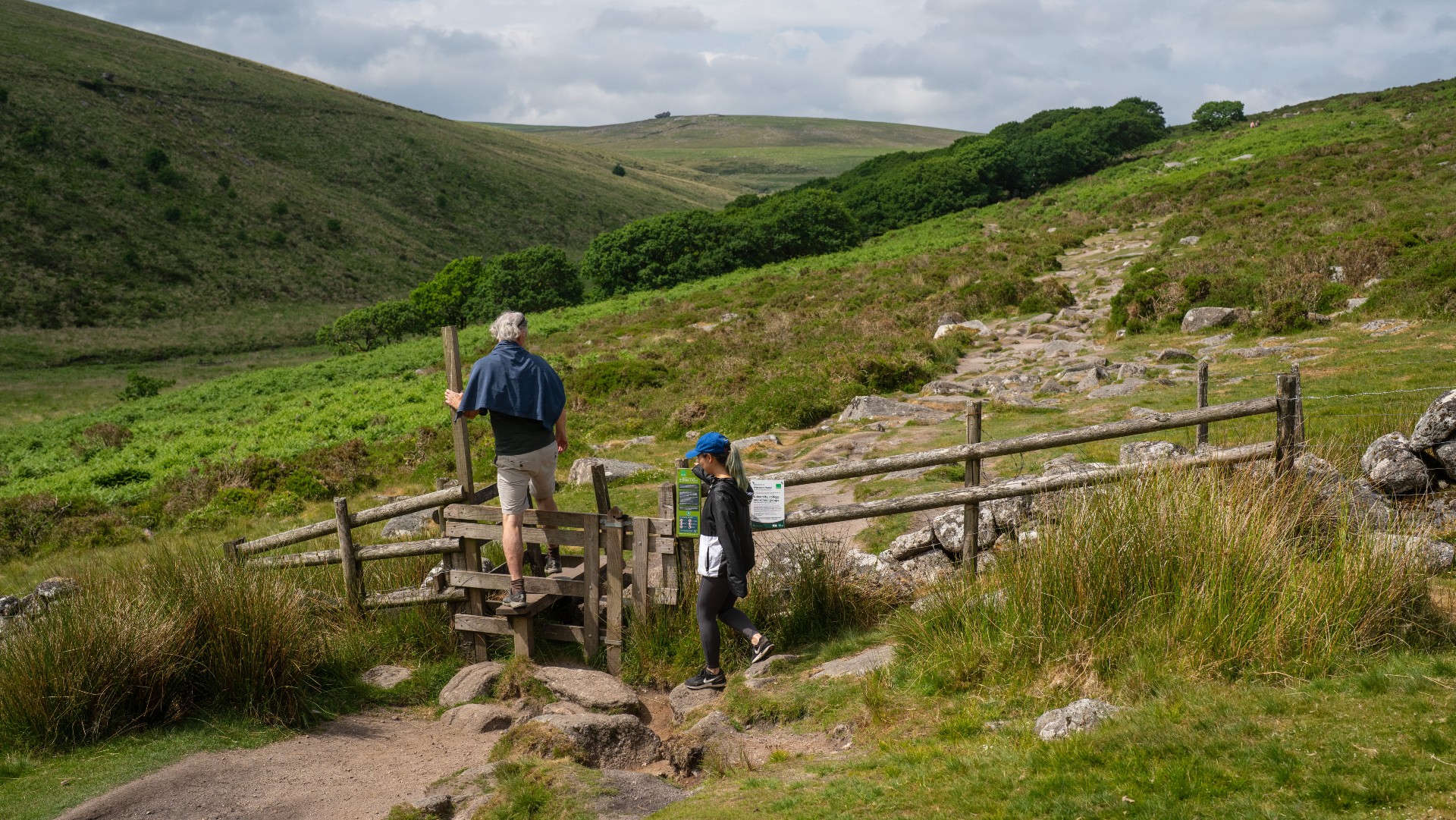Dartmoor and the right to roam in England
Court of Appeals ruling a ‘rare victory’ for countryside access as Labour vows to enshrine rights in law

A free daily email with the biggest news stories of the day – and the best features from TheWeek.com
You are now subscribed
Your newsletter sign-up was successful
A ruling that members of the public have the right to wild-camp in Dartmoor National Park has been welcomed by “right-to-roam” activists who claim that swathes of England’s countryside are unfairly off limits.
In January, the High Court ruled the owner of an estate on Dartmoor had the right to remove members of the public wishing to camp on his land.
Dartmoor is the only area of England and Wales where, under a local law, there has been an assumed right to wild-camp without the landowner’s permission, so the trial “has been seen as a test case for countryside access”, said the BBC.
The Week
Escape your echo chamber. Get the facts behind the news, plus analysis from multiple perspectives.

Sign up for The Week's Free Newsletters
From our morning news briefing to a weekly Good News Newsletter, get the best of The Week delivered directly to your inbox.
From our morning news briefing to a weekly Good News Newsletter, get the best of The Week delivered directly to your inbox.
The English nature writer Robert Macfarlane said the decision was a nationwide wake-up call and warned that only when “the last relic of a long-lost openness” was threatened did it become clear just how much was at stake.
The Court of Appeal agreed, ruling that the law “confers on members of the public the right to rest or sleep on the Dartmoor Commons, whether by day or night and whether in a tent or otherwise” as long as byelaws are followed and, crucially, that wild camping could be considered a form of “open-air recreation”.
This represents a “rare victory for the right of citizens to roam”, said Ian Acheson in The Spectator.
What is the ‘right to roam’?
Despite the gradual enclosure of “wild” and “common” land by wealthy landowners from the 18th century onwards, open access to the countryside was only established after the Kinder Scout Mass Trespass in 1932.
A free daily email with the biggest news stories of the day – and the best features from TheWeek.com
From the 1940s Parliament began to codify the idea that people had an inherent right to move across the landscape, culminating in the Countryside Rights of Way (CROW) Act in 2000. This recognised the right to use designated paths but also to roam freely on certain mountains, moors, heaths and downs mapped as “open country” or on land registered as common. In 2009 this right was extended to shores and coastal footpaths.
Lately though, said The New York Times, those hard-won gains had begun to seem “both less expansive and less secure” than they once did. The paper said the government “began to push to criminalise forms of trespass never before considered to be crimes”, a process exacerbated during the pandemic as countryside access was further curtailed.
At present just 8% of land in England, and just 3% of rivers, is covered by a legal right to roam. Furthermore, research from Friends of the Earth found ethnic minorities and those from low-income backgrounds are considerably less likely to live near an accessible green space.
With the aristocracy still estimated to own 30% of all land, “it seems clear that too much green space in England largely remains the locked and bolted preserve of the wealthy few”, said Caroline Lucas, the only Green Party MP, in Metro, labelling it “egregious inequality”.
Should it be enshrined in law?
To be strictly accurate, said Acheson, Tuesday’s overturned ruling specified that wild camping “could be continued – but not as a right”.
As the right-to-roam campaign has gained momentum, “with thousands of people having taken part in mass trespasses last summer to demand more access to the countryside”, reported The Guardian, so have calls to enshrine the right in law. Last year, Lucas put forward a bill to extend the public’s right to roam rivers, woods, green belt and more grasslands.
Labour has said it will go even further, pledging to introduce a Scottish-style right-to-roam law in England if it wins the next general election, with access to green space enshrined in law.
The Land Reform (Scotland) Act 2003 permits the public to walk through the countryside – provided they leave no trace – with some exceptions such as land that is growing crops. It also allows the public to camp on most unenclosed land, excluding private residential or public property such as school grounds or playing fields, golf courses, airfields or military bases.
Similar rights have long been in place in other European countries, including Finland, Norway, Iceland, Austria, Latvia, Estonia, Lithuania, the Czech Republic and Switzerland.
Fundamentally, said Lucas, “increasing public access to nature – and extending the right to roam – is about acknowledging that we cannot protect what we don’t love, and we cannot love what we do not know – and in order to know it, we must be fully immersed in it, and intimately connected to it”.
-
 Is Andrew’s arrest the end for the monarchy?
Is Andrew’s arrest the end for the monarchy?Today's Big Question The King has distanced the Royal Family from his disgraced brother but a ‘fit of revolutionary disgust’ could still wipe them out
-
 Quiz of The Week: 14 – 20 February
Quiz of The Week: 14 – 20 FebruaryQuiz Have you been paying attention to The Week’s news?
-
 The Week Unwrapped: Do the Freemasons have too much sway in the police force?
The Week Unwrapped: Do the Freemasons have too much sway in the police force?Podcast Plus, what does the growing popularity of prediction markets mean for the future? And why are UK film and TV workers struggling?
